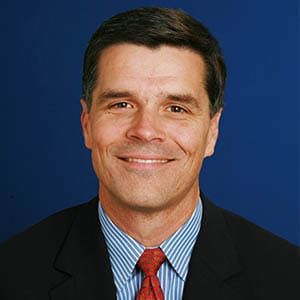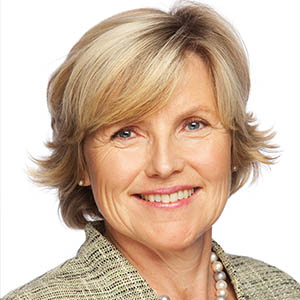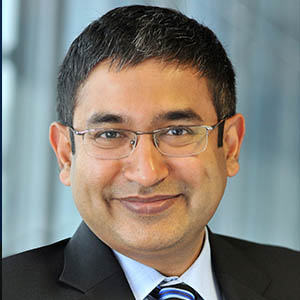Return To Coverage
NORTH AMERICA
Citi

Citi Direct Custody and Clearing has on-the-ground operations in 62 markets around the world, more than any other subcustodian bank. “We have been at this for a long time in most markets,” says Lee Waite, global head of direct custody and clearing at Citi. “Our global platform and procedures mean that clients know what to expect.”
Although there are nuances country by country, Citi’s specialists on the ground are adept at handling difficult situations that may arise. “Clients can pick up the phone and speak with our people and get good answers,” Waite says. “The way we handle these difficulties is how we earn our stripes.”
The operating environment in the industry, in terms of profitability, will remain difficult for the next two to three years, and there could be further consolidation, Waite says. “The focus is on costs and looking everywhere to bring them down. We need to get more and more efficient by using technology.”
WESTERN EUROPE
Societe Generale
Societe Generale is the leading custodian in Europe, with $4.2 trillion of assets under custody. The quality of its clearing and settlement services is outstanding, particularly in its home market of France, as well as in Italy and Spain. Its Spanish subsidiary, SGSS Madrid has been providing post-trade securities services for more than 40 years. SGSS is present in 28 locations worldwide, including Central and Eastern Europe and South Africa. Its custodial joint venture with State Bank of India, SBI-SG, has grown rapidly. Societe Generale’s integrated global markets platform provides access to a wide range of markets, including commodities and derivatives. The bank now offers CME Group (Chicago Mercantile Exchange) portfolio margining for its prime services clients to optimize their cost of collateral.
ASIA-PACIFIC
HSBC
Hong Kong is the flagship of HSBC’s extensive subcustody and clearing business in Asia. In China it holds more assets under the Qualified Foreign Institutional Investors program than any other bank. (The program allows selective foreign investments in China’s renminbi-denominated capital markets.) In India, HSBC has led the market for foreign investors since they were first allowed to participate in 1993. HSBC has a majority market share of foreign-invested funds in Malaysia, the Philippines and Sri Lanka, and nearly half of the market in South Korea. HSBC was the first foreign bank granted a custodian license in Indonesia and Vietnam. It is one of the largest subcustodians in Taiwan and Thailand. HSBC is processing record volumes of business and has introduced a set of services to support the Shanghai—Hong Kong Stock Connect initiative.
LATIN AMERICA
Citi
Citi is the leading custodian in Latin America, covering the eight largest markets in the region. Its success is due in part to its willingness to go the extra mile to customize solutions and reengineer processes to meet the specific needs of its diverse customer base. This has helped Citi to win the largest number of mandates in the region, particularly for complex and innovative deals.
Citi offers a proprietary mobile platform that provides detailed information on fund flows, local market practices, transactions and counterparty exposures. Clients can speak live with local Citi specialists for information on critical market developments.
Earlier this year Citi lost its ability to provide custody services in Argentina. The National Securities Commission suspended Citi from operating in local capital markets after the Argentine government demanded that Citi process interest payments on swapped bonds. To do so would have put Citi in defiance of US court orders.
CARIBBEAN
Scotiabank
Canadian banks, which have long been active in the Caribbean, have begun to scale back their operations, owing to a prolonged recession in many parts of the region, but Scotiabank appears to have the greatest staying power. The bank opened its first Caribbean office in Jamaica in 1889. Today, Scotiabank offers SWIFT coverage in more than 20 countries in the region. Its Five Continents subsidiary in the Cayman Islands provides asset management and custody services. Scotiabank Trust Cayman manages the bank’s mutual funds. In Jamaica and Trinidad and Tobago, Scotia Investments offers stock brokerage services. Scotiabank is considering expanding in Cuba, where it already has a representative office.
CENTRAL AND EASTERN EUROPE
UniCredit

UniCredit Global Securities Services operates the leading subcustody network in Central and Eastern Europe, covering 13 markets with $185 billion of assets under custody. UniCredit offers a single point of entry to its CEE securities services through its Vienna hub and has a direct presence in all of its markets through full-scale universal banks. It has the longest track record in Austria, where it serves 60% of foreign institutional custody clients. Bank Pekao, majority-owned by UniCredit, was the first bank in Poland to offer custody services. As the only financial institution in the region that is a member of the European Central Bank’s T2S advisory group, UniCredit has been the driving force behind national developments relating to T2S in the CEE markets. Tomasz Grajewski, global head of global securities services at UniCredit, says: “Through leveraging our unique position in the CEE, we can provide unmatched local connectivity, operational efficiencies and service excellence, delivered with a conservative approach to risk.”
NORDIC REGION
Nordea

Stockholm-based Nordea was formed from the successive mergers of Finnish, Danish, Norwegian and Swedish banks. “Nordea is unique in the region due to being indigenous to all four Nordic markets, as opposed to branching out from a single market,” says Anne-Lise Kristiansen, head of Nordea Securities Services. “This gives us a superior ability to influence, lobby and drive the developments in the region toward further harmonization and efficiency.”
The trend of consolidation to regional providers is continuing and is likely to result in fewer subcustodians across Europe, Kristiansen says. “We see that scale is important, and we expect consolidation to continue or even accelerate, due to pan-European initiatives, such as T2S,” she says. “We are the leading custodian in the Nordic region, and we are investing heavily in new systems to adapt to the changes.”
MIDDLE EAST
HSBC

HSBC offers subcustody services in all six of the Gulf Cooperation Council countries, as well as Egypt, Lebanon and Palestine. It sold its operations in Jordan to Arab Jordan Investment Bank in 2014. HSBC is the longest-established international subcustodian in the region, and it entered these markets as soon as they opened to foreign investors, beginning in the mid-1990s. Arindam Das, regional head of Middle East and North Africa at HSBC Securities Services, says: “We have a dedicated regional taskforce of experts who can be deployed in-country quickly to build or upgrade systems—for example, ahead of the Saudi stock market opening. This has become increasingly valuable in the region, given the recent MSCI upgrades of the UAE and Qatar from frontier markets to emerging markets.”
HSBC upgraded its core custody system and formalized the matching process and deadlines for intercustodian trades in the UAE. HSBC Qatar introduced investment custodian services for exchange-traded funds. “We have seen an increase in stock listings, notably in the UAE and Egypt,” Das says. “The opening of the $550 billion Saudi Arabian market presents a major opportunity. All of this augurs well for the custody business in the region.”
AFRICA
Standard Bank
Standard Bank, the largest bank by assets in Africa, has a leading position in investor services across sub-Saharan Africa. It provides custody and related services in 15 countries on the continent. In South Africa, where it has a subcustody market share of 55%, Standard Bank offers the most extensive range of services. The bank leverages this expertise to introduce new products elsewhere in Africa, such as securities lending, which will be implemented shortly in Nigeria. It is analyzing the potential and requirements for derivatives clearing in Kenya.
Mark Kerns, global head of investor services for the bank, says: “We have the connectivity in the markets to influence change required by clients and change that moves toward global best practice. We have introduced our broad product set in South Africa to other markets in Africa in line with individual country demand. We expect to see the African markets continue to grow in size and sophistication.”



